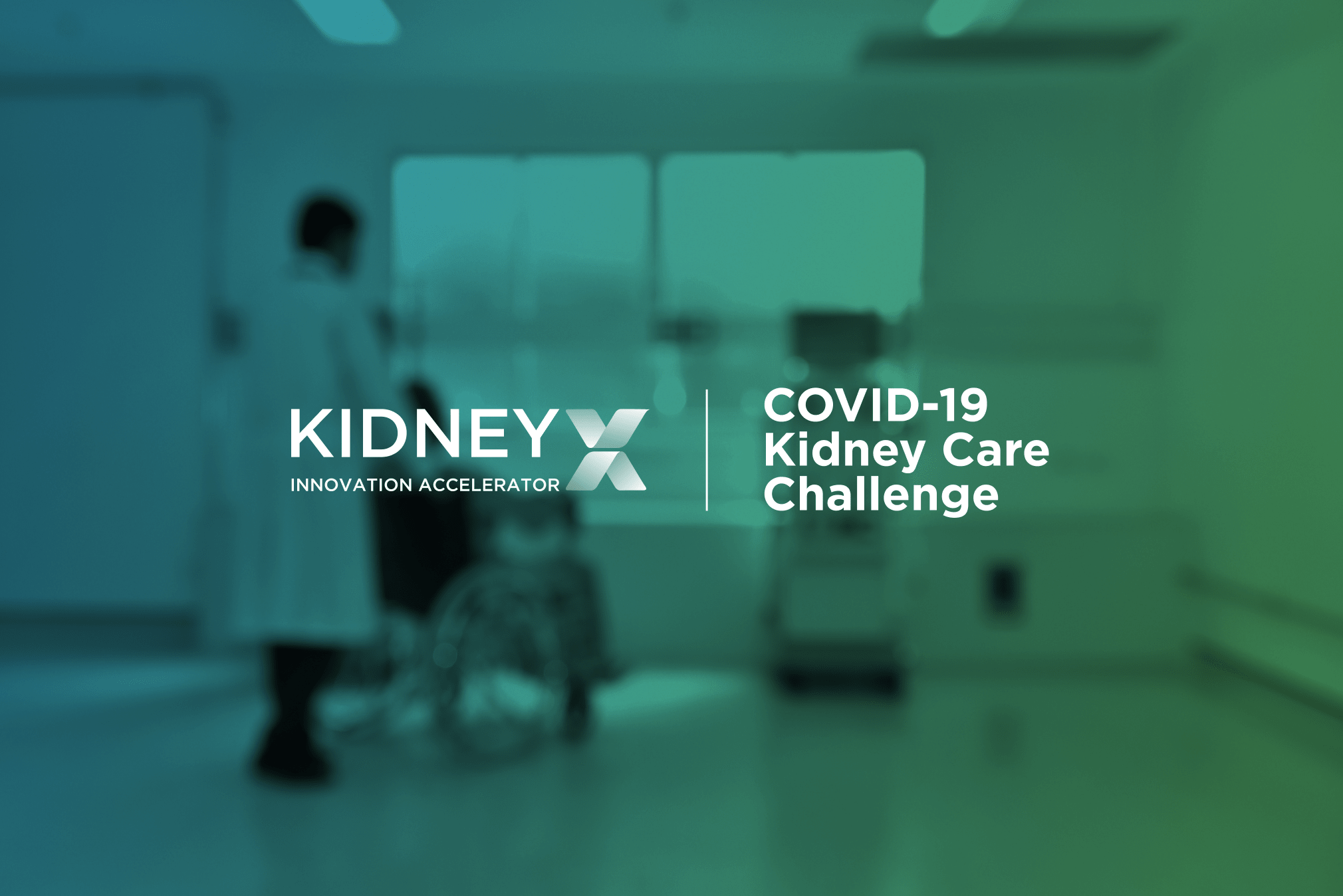KidneyX COVID-19 Kidney Care Challenge names winners
To date, more than 30 million people in the U.S. have tested positive for the coronavirus. The 37 million Americans living with kidney disease are at increased risk of severe illness from COVID-19, and acute kidney injury — sudden loss of kidney function — affects 20-40% of COVID-19 patients admitted to intensive care. Even worse, the pandemic is exacerbating existing health disparities; COVID-19 disproportionately impacts communities that are already more vulnerable to kidney disease and other conditions.
The scale and severity of the pandemic mean patients, caretakers, and healthcare providers can’t wait for solutions. Over the past year, research centers, hospitals, dialysis centers, and other organizations have developed innovative approaches to everything from patient monitoring, patient education, and vaccine distribution to data management, detection, and telehealth. These frontline innovators have proved that effective solutions can come from anyone, anywhere. That’s why the Kidney Innovation Accelerator (KidneyX), a public-private partnership between the U.S. Department of Health and Human Services (HHS) and the American Society of Nephrology (ASN), used open innovation to quickly source and recognize solutions — then share them with other communities.
HHS and ASN recently announced 15 winners in Rounds 1 and 2 of the KidneyX COVID-19 Kidney Care Challenge. The $300,000 challenge, designed and produced by Luminary Labs, is recognizing solutions that could reduce the transmission of coronavirus among people with kidney disease and/or reduce the risk of kidney damage among people who contract the virus. KidneyX has published detailed summaries of the winning solutions, including considerations for implementation and adaptation.
Round 1 winners
- Alio. Remote monitoring platform to reduce COVID-19 risk for hemodialysis patients.
- Canopy. A transparent, reusable respirator with interchangeable filter cores and a silicone face seal.
- Docola. Web-based learning platform with chronic kidney disease and COVID-19 patient education resources.
- Gretta Weindorf, MSN, APRN, FNP-BC; Kidney Care Specialists. Rooming approach for dialysis facilities to minimize the COVID-19 exposure risk in the waiting room.
- Lama Nazzal, M.D., M.S.; New York University School of Medicine. Mixed methods approach to characterizing the determinants of COVID-19 vaccine hesitancy among a diverse population of patients with kidney failure.
- Minority Organ And Tissue Transplant Educational Program Of Cleveland. COVID-19 pandemic education kits distributed at dialysis care facilities in areas with a high social vulnerability index.
- Northwest Kidney Centers. The ‘Good Humoral’ Immunity Truck and Freezer Project: Retrofitted, freezer-equipped, mobile immunization units to provide vaccines in urban, suburban, and rural settings.
- The Rogosin Institute. Virtual peritoneal dialysis training to minimize potential COVID-19 exposure.
Round 2 winners
- CADIS. Mixed reality smart glasses supporting kidney disease management through telehealth and telemonitoring.
- Jacob Stevens, M.D.; Assistant Professor of Medicine at Columbia University Irving Medical Center. Customized data management tools to reduce coronavirus transmission in healthcare settings and maximize the number of patients receiving renal replacement therapy.
- New York-Presbyterian. Proactive, structured workflow to monitor and manage patients with kidney transplants during the COVID-19 pandemic.
- Outset Medical. Cloud-based remote monitoring of the Tablo Hemodialysis System that enables clinicians to track critical treatment parameters in real-time during the COVID-19 pandemic.
- Paraic Kenny, Ph.D.; Gundersen Medical Foundation. Genetic sequencing of COVID-19 cases to determine patterns of spread and inform infection control practices.
- Renal Research Institute. Pool testing of used masks from hemodialysis patients and clinic staff to identify SARS-CoV-2.
- Winnie Cheng; StockMyPantry. Delivery of dietician-recommended groceries for dialysis and transplant patients in need.

